Planetary Science
-
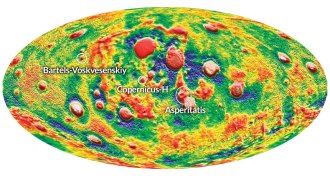 Planetary Science
Planetary ScienceProbes unveil three hidden blemishes on moon’s face
Gravitational tugs on a pair of spacecraft have revealed previously unseen blemishes on the moon’s face.
-
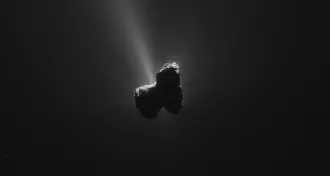 Planetary Science
Planetary ScienceOxygen leaking from comet surprises astronomers
The Rosetta spacecraft detected oxygen molecules coming out of comet 67P that might have been buried since the formation of the solar system.
-
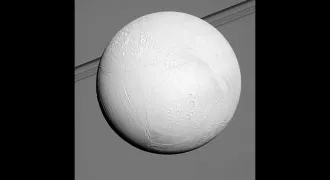 Planetary Science
Planetary ScienceCassini preps to shower in Enceladus’ ocean
The Cassini spacecraft is gearing up for one last plunge through the water geysers on Enceladus, an icy moon of Saturn.
-
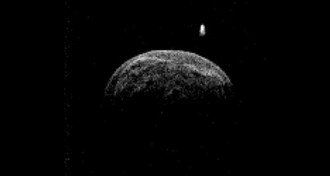 Planetary Science
Planetary ScienceAsteroid set for Halloween flyby
Large asteroid will pass Earth just beyond the moon’s orbit on Halloween.
-
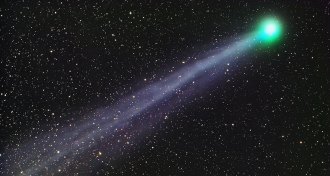 Astronomy
AstronomyComet carries alcohol, sugar
Sugar and alcohol are just two of the ingredients that go into making a comet.
-
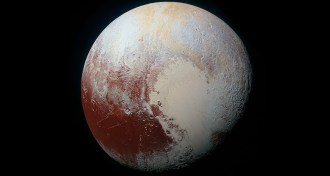 Planetary Science
Planetary ScienceFive surprising discoveries about Pluto
Here are five key (though not necessarily new) findings in the paper that epitomize the surprising complexity of the Pluto system.
By Andrew Grant -
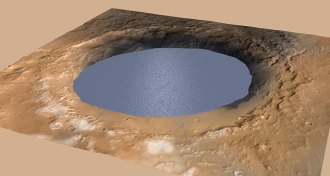 Planetary Science
Planetary ScienceAncient Mars had long-lasting lakes of liquid water
New evidence gathered by NASA’s Curiosity rover suggests Gale Crater once contained a stable lake of liquid water.
-
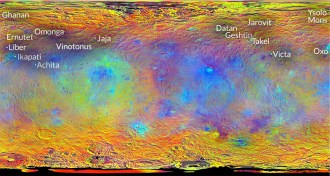 Planetary Science
Planetary ScienceCeres mountains and craters named for food
A host of agricultural spirits are immortalized on several craters and mountains on the dwarf planet Ceres.
-
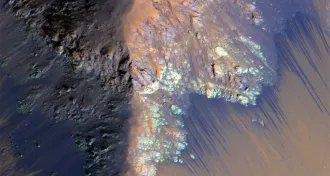 Planetary Science
Planetary ScienceSalt streaks sign of present-day water flows on Mars
Salt deposits on Mars hint at contemporary seasonal water flows on the Red Planet.
-
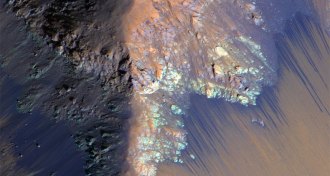 Planetary Science
Planetary ScienceSalt streaks point to present-day water flows on Mars
Salt deposits on Mars hint at contemporary seasonal water flows on the Red Planet.
-
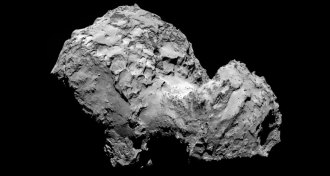 Planetary Science
Planetary Science67P reveals recipe for a comet
Rosetta’s comet 67P probably started out as two smaller comets.
-
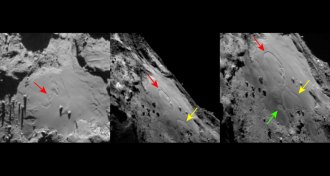 Planetary Science
Planetary ScienceMysterious circles appear, grow on comet
The Rosetta spacecraft caught five circular depressions quickly spreading across a region of comet 67P.